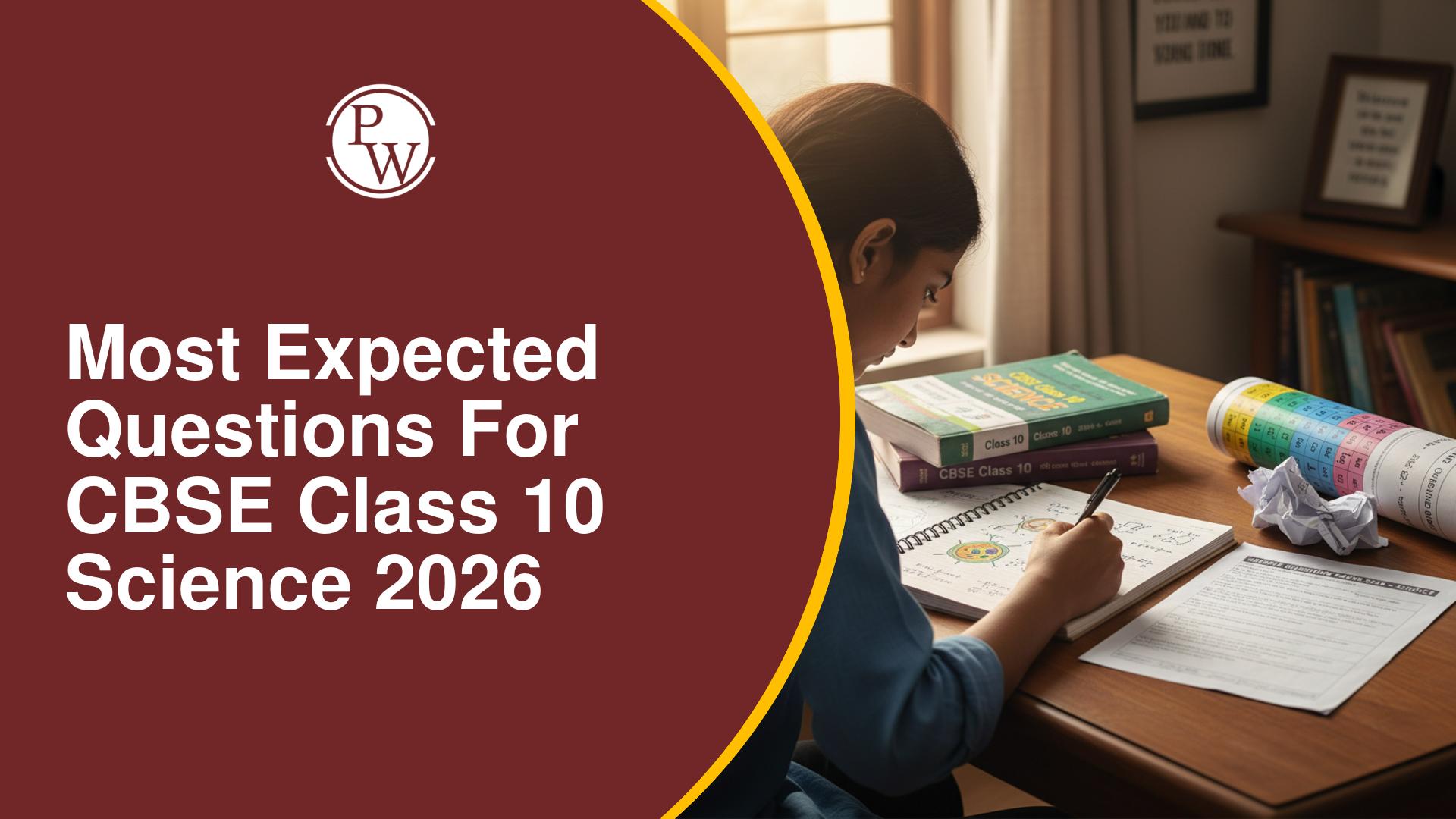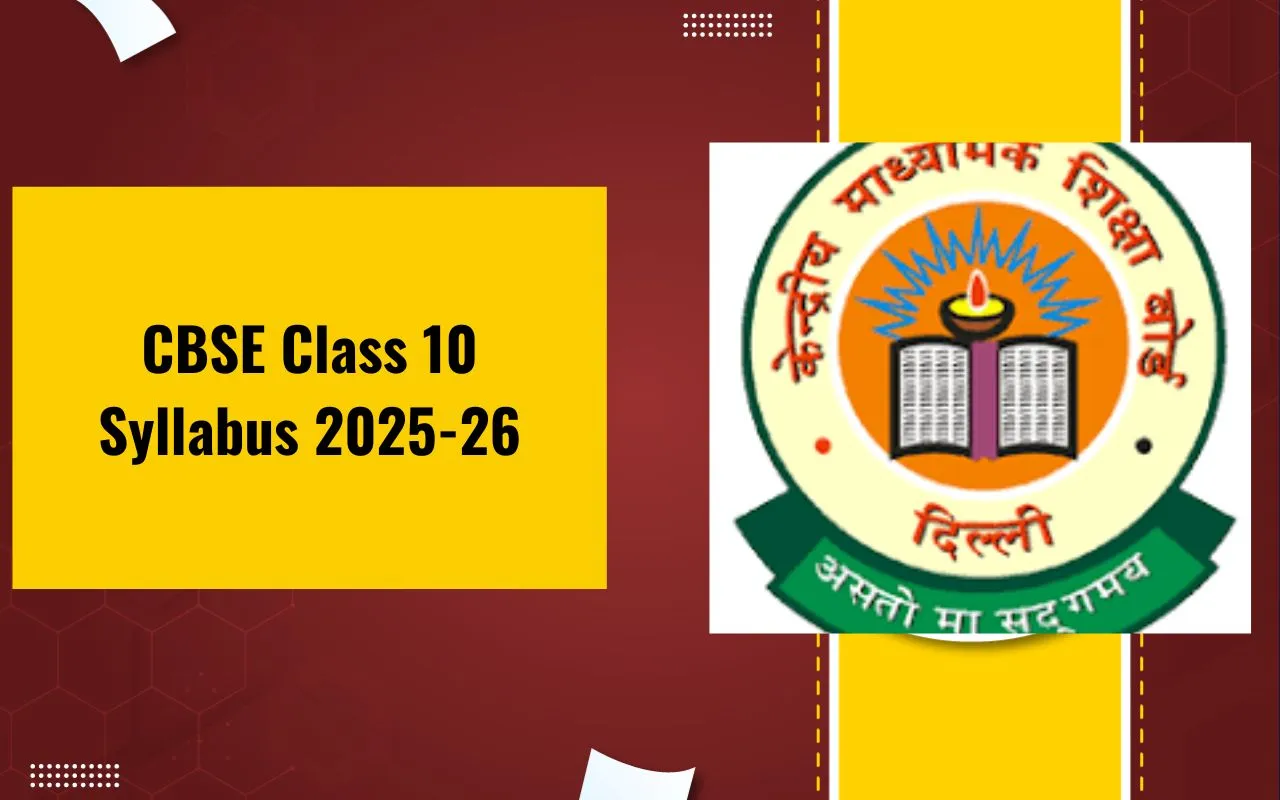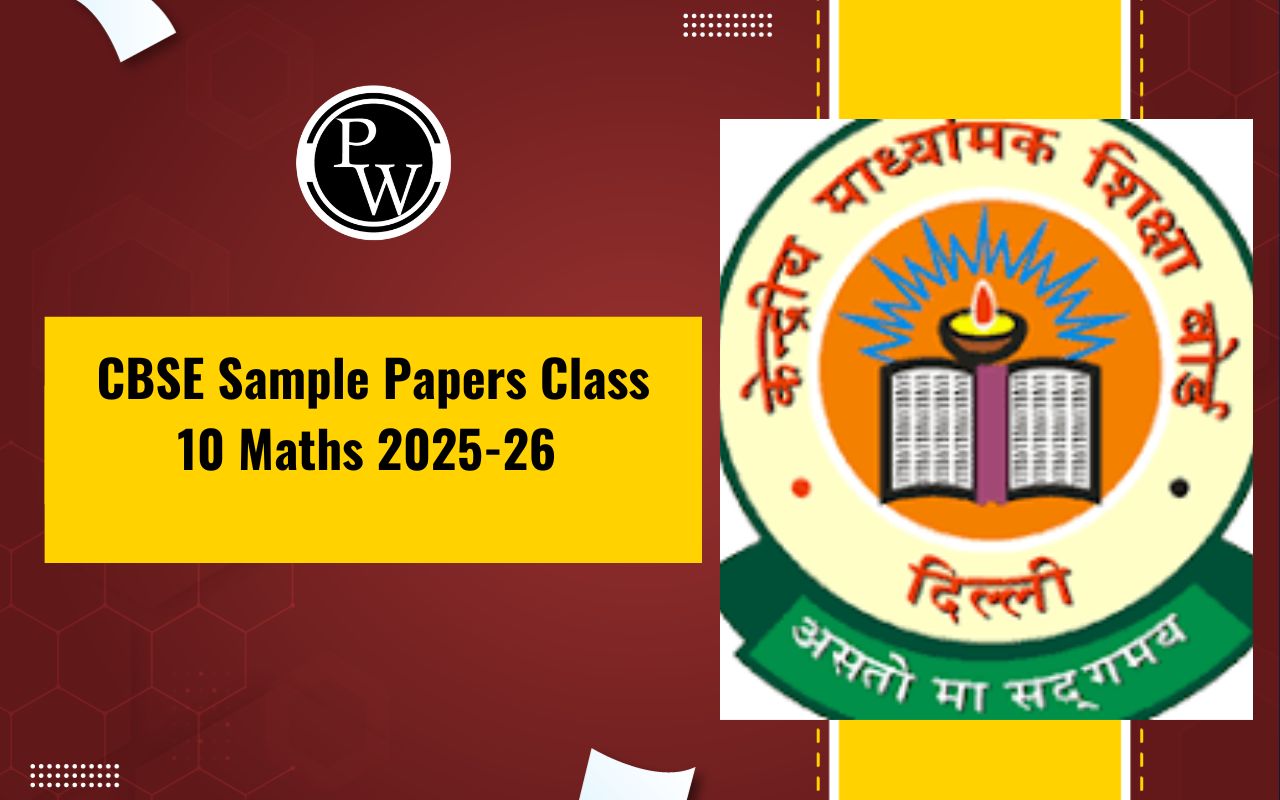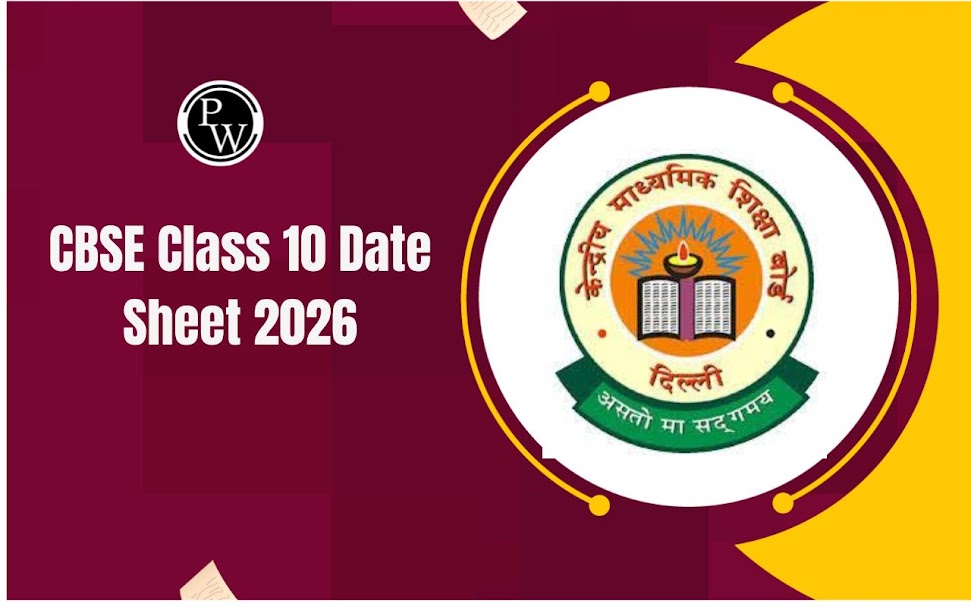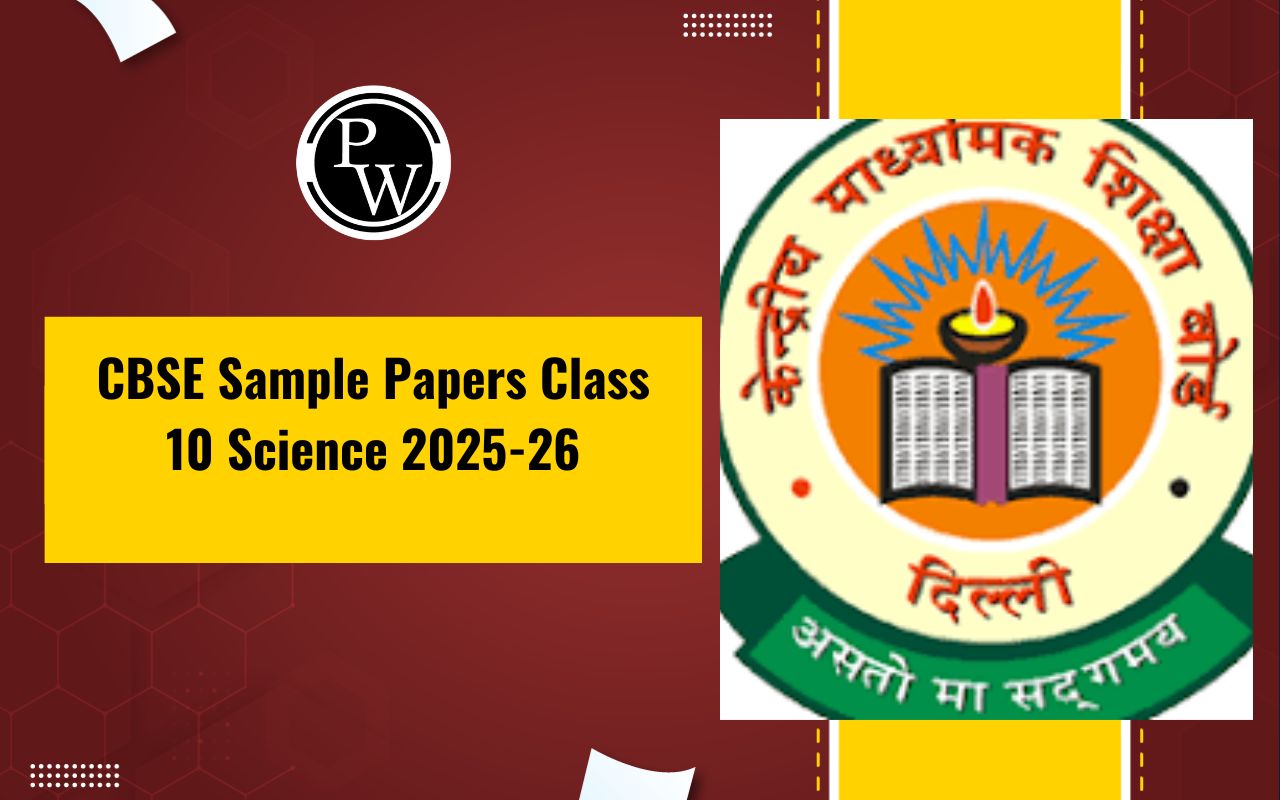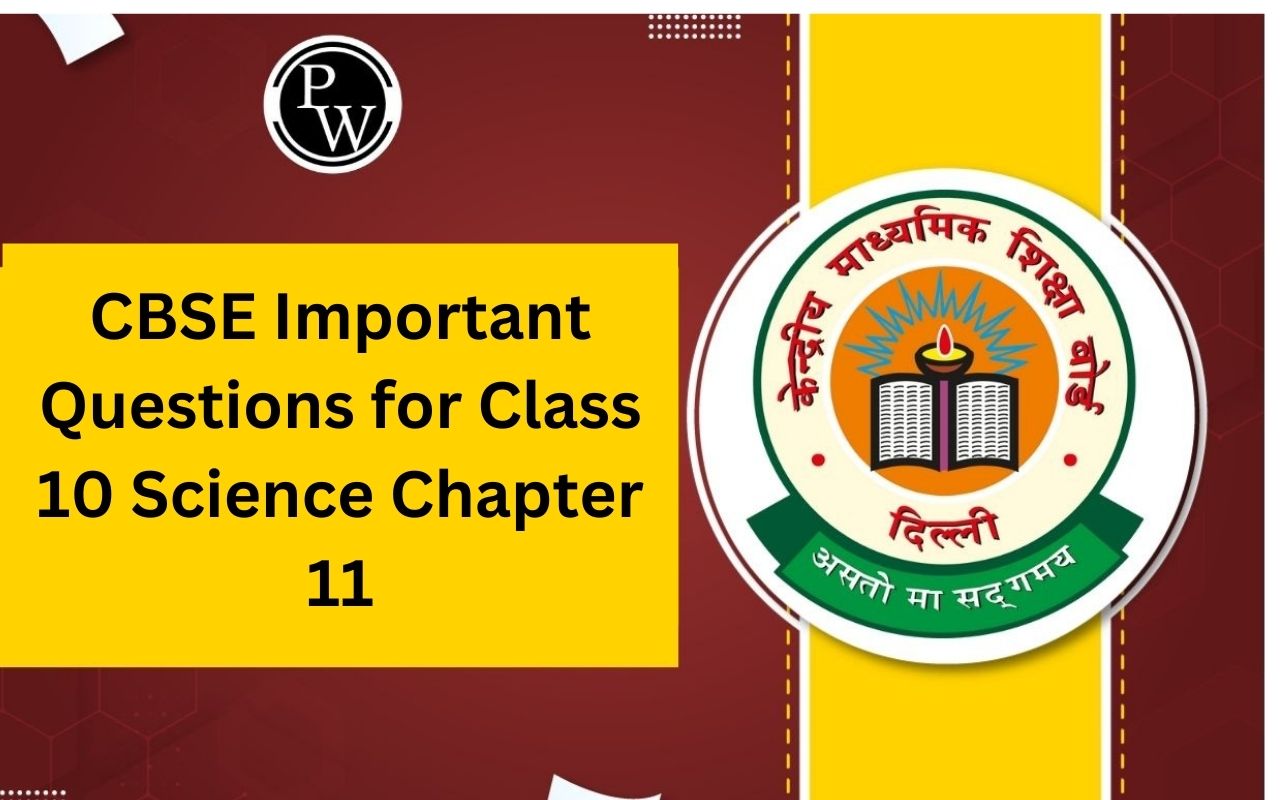
ICSE Class 10 Preparation Tips 2024: If you're preparing for the ICSE Class 10 board exams in 2024 starting from February 21, 2024, are all aiming for a good score of 95+ marks. Achieving this goal requires thorough preparation and dedication. There are no shortcuts when it comes to excelling in these exams.
While there is no magic formula for success, there are strategies that can make your preparation journey smoother. It's important to understand that scoring well in the ICSE Class 10 exams demands consistent effort and a disciplined approach to studying. To maximize your chances of success, it's important to take helpful tips and techniques for ICSE board exams. However, keep in mind that these tips will only help if you're committed to putting in the hard work and staying consistent with your study schedule.ICSE Class 10 Preparation Tips 2024
Below are some effective ICSE Class 10 Preparation Tips for 2024 that students should keep in mind:Tip 1: Understand the Syllabus
It's crucial to download and thoroughly understand the complete syllabus. This ensures you focus your efforts on relevant topics, avoiding time wastage. Carefully review the subject-wise syllabus to plan your study approach.Tip 2: Prepare a Timetable
Create a timetable according to your schedule, ensuring you stick to it diligently. Divide your time fairly for each subject and include breaks for refreshments and rest. A well-structured timetable will act as a guide in managing your time efficiently.Tip 3: Start with Difficult Subjects
Prioritize studying subjects you find challenging. By tackling difficult subjects first, you'll have ample time to grasp complex concepts. Leave easier subjects for later to optimize your preparation.Tip 4: Make Short Notes
Consolidate your learning by creating concise notes for each concept. Writing down key points aids memory retention and facilitates quick revision. Personalize your notes with your own explanations rather than relying solely on textbook language.Tip 5: Solve Previous Year Questions
Solving previous year question papers regularly is one of the important preparation strategy. This familiarizes you with the question pattern and may reveal recurring questions. Aim to solve at least one old question paper daily to hone your exam-solving skills.Tip 6: Revise Regularly
Regular revision is essential for retaining learned concepts. Allocate a day each week for revisiting past topics to reinforce your understanding and prevent forgetting.Tip 7: Utilize Online Resources
Seek help from online resources if you encounter difficulties. Watch educational videos on platforms like YouTube to strengthen your knowledge and enhance answer writing skills.ICSE Class 10th Preparation Tips 2024 Science
Here are some ICSE Class 10th Preparation Tips for Science in 2024:Focus on Application-Based Questions: Prioritize understanding and practicing application-based questions to enhance problem-solving skills.
Note Important Theorems in Your Own Words: Summarize important theorems and concepts in your own words for better understanding and retention.
Create a Memory Concept Map: Develop a visual concept map to connect related concepts and improve comprehension.
Practice Online Quizzes: Take advantage of online quizzes to reinforce understanding and practice applying concepts in different contexts.
Use Interactive Videos on YouTube: Take help from educational videos on platforms like YouTube to simplify complex topics and strengthen conceptual understanding.
ICSE Class 10th Preparation Tips 2024 English & Hindi
For effective preparation in ICSE Class 10 English and Hindi exams in 2024, students should adhere to the following tips:Master Grammar: Ensure a solid understanding of grammar rules in both languages to enhance writing skills and comprehension.
Focus on Clarity: Focus on clear and concise answers rather than lengthy and complicated ones. In formats like letter writing, prioritize adherence to proper format and clarity of expression.
Quotes and Poems: Familiarize yourself with the works of notable poets and writers. Integrate relevant quotes and lines from poems into your answers to add depth and insight.
Highlight Important Topics: For topics like women's issues, inflation, pollution, and physical activity, include relevant quotes and slogans in paragraph writing to underscore key points effectively.
ICSE Class 10th Preparation Tips 2024 Social Science
For effective preparation in ICSE Class 10 Social Science exams in 2024, students should adhere to the following tips:Use Mnemonics: Use mnemonic devices to memorize important events, dates, and concepts. Mnemonics can be helpful for retaining information in a structured and memorable way.
Highlight Difficult Concepts: Identify dates or events that you find challenging to understand, and make a note to revise them before the exam. Highlighting these areas ensures focused revision and helps reinforce your understanding.
Focus on Map Questions: Pay special attention to map-based questions, as they often constitute a significant portion of the paper. Reviewing previous years map questions can provide insight into the types of maps and locations commonly tested.
Emphasize Important Facts: When answering questions, be sure to include and highlight important facts such as dates, Acts, and key events. This gives a comprehensive understanding of the subject matter and give you additional marks.
ICSE Class 10th Preparation Tips 2024 Mathematics
For effective preparation in ICSE Class 10 Mathematics exams in 2024, students should adhere to the following tips:Organize Your Materials: Maintain separate notebooks for mathematics, rough work, and notes. This ensures your study materials are organized and easily accessible when needed.
Note Important Formulas: Dedicate a section in your notebook to note down important formulas for each chapter. Regularly review these formulas to help your understanding and memorization.
Practice Examples: Don't skip the examples provided in the textbook. Work through them thoroughly to understand the underlying concepts and problem-solving techniques.
Solve NCERT Problems: Practice solving all the problems provided in the NCERT textbook. This helps in familiarizing yourself with different types of questions and helps your problem-solving skills.
Document Procedures: When solving problems, write down the mathematical procedures you use. This not only helps in understanding your own problem-solving approach but also aids in reviewing and revising concepts.
Regular Revision: Keep revising the formulas and concepts. Repetition is key to memorization, so make sure to revisit the formulas again and again.
ICSE Class 10th Preparation Tips 2024: Best Books
While NCERT textbooks serve as the primary resource for ICSE Class 10 preparation, students can refer to reference books to enhance understanding. Here are some recommended books:Science:
- Together with Biology Class X (ICSE Based) (English) 13th Edition by A. Jacob
- Together with Physics for ICSE Students Class-X (English) by Mukesh Kumar Gandhi
- Together with Chemistry Class X (ICSE Based) (English) 13th Edition by Anshu Gulati
Mathematics:
- ICSE Mathematics For Class 10 / E5 by Asit Das Gupta
Social Science:
- Together with History & Civics Class-X (English) 11th Edition by Nilima Dayal
ICSE Class 10th Exam Pattern 2024
To score well in the ICSE Class 10 board exam, it's important to understand the question patterns. Here is the breakdown of the exam pattern:- Mode of Exam: The exam will be conducted in offline mode, requiring candidates to write their answers on paper.
-
Subject Groups:
The exam consists of 7 major subjects grouped into 3 categories:
- Group I: Includes four required subjects.
- Group II: Comprises 2 optional subjects.
- Group III: Offers one elective subject.
ICSE Class 10th Marking Scheme 2024
It's important for students to be well-informed about the marking scheme by ICSE authorities for evaluating answer sheets. Below is a table outlining the subjects included in each group along with the corresponding marking scheme:| Groups | Marking Scheme | Subjects Included |
|---|---|---|
| Group I | 80% external exam + 20% internal exam | - History, Civics, Geography - English - Second Language (one/two) |
| Group II | 80% external exam + 20% internal exam | - Science (Physics, Chemistry, Biology) - Mathematics - Commercial Studies - Economics - Environmental Science - A Classical Language - A Modern Foreign Language |
| Group III | 50% external examiner + 50% internal examiner | - Arts - Performing Arts - Computer Applications - Economic Applications - Commercial Applications - Fashion Designing - Physical Education - Yoga - Cookery - Home Science - A Modern Foreign Language - Technical Drawing Applications - Environmental Applications |
ICSE Class 10th Last-Minute Preparation Tips 2024
Quick Revision: Review all relevant topics and trends quickly to refresh your memory.
Revise Notes: Spend time revising your notes the day before the exam for better understanding and retention.
Concept Clarity: Ensure you have a clear understanding of all concepts and theories covered in the syllabus.
Formula Familiarity: Be well-versed with all the formulas required for the exam.
Regular Practice: Regularly practicing problems is essential for clarity on the exam syllabus.
Mock Tests: Solve as many mock tests as possible to familiarize yourself with the exam pattern and identify areas for improvement. Ideally, take mock tests days before the exam to allow time for improvement.
Avoid New Topics: Avoid studying new topics at the last minute, as it may lead to confusion and unnecessary stress.
Prioritize Health: Lastly, don't neglect your health. Ensure you stay fit and healthy, as it directly impacts your performance in the exam.
ICSE Class 10 Preparation Tips: Study Time Table to achieve 95+ in ICSE Board exam 2024
Success in exams requires a balance of both hard work and smart work. Students aiming to score 95+ in the ICSE Board exams must put in rigorous effort combined with strategic planning. Here's a study timetable for achieving this goal:Study Time Table to Score 95+ in ICSE Board Exam 2024:
Sleep: Ensure a good 8 hours of sleep each day to rejuvenate your mind and body for effective study sessions.
Daily Chores: Allocate about 4 hours for daily chores, meals, and other miscellaneous tasks.
Hobbies/Exercise: Dedicate at least 30 minutes to an hour to indulge in hobbies, physical exercise, or relaxation activities to refresh and energize yourself.
Study Sessions (10-11 hours):
- Quick Revision: 1 hour for a quick revision of topics studied the previous day.
- Study New Topic (Subject of Interest): 1 hour to delve into a new topic from a subject you like and excel at.
- Study New Topic (Challenging Subject): 1 hour to tackle a new topic from a subject you find difficult.
- Practice Questions: 1 hour to attempt practice questions from the textbook for the new topics studied.
- Study New Topic (Interesting or Easy Subject): 1 hour to explore a new topic from a subject you find interesting or easy.
- Study New Topic (Difficult Subject): 1 hour to tackle a new topic from a subject you struggle with.
- Practice Questions: 1 hour to attempt practice questions from the textbook for the new topics studied.
- Planning: Spend the last 30 minutes planning the topics you'll cover the next day.
| Download Hand Written Answer Sheets PDF’s | |
| Biology Hand Written Answer Sheets | Maths Hand Written Answer Sheets |
| Chemistry Hand Written Answer Sheets | Physics Hand Written Answer Sheets |
| English Hand Written Answer Sheets | |
ICSE Class 10 Preparation Tips 2024 FAQs
How important is solving previous years question papers for ICSE Class 10 preparation?
What are some effective revision strategies for ICSE Class 10 exams?
Is ICSE syllabus reduced for 2024 Class 10?
What is the top 5 rule in ICSE?
What are the 4 compulsory subjects in ICSE 10?


